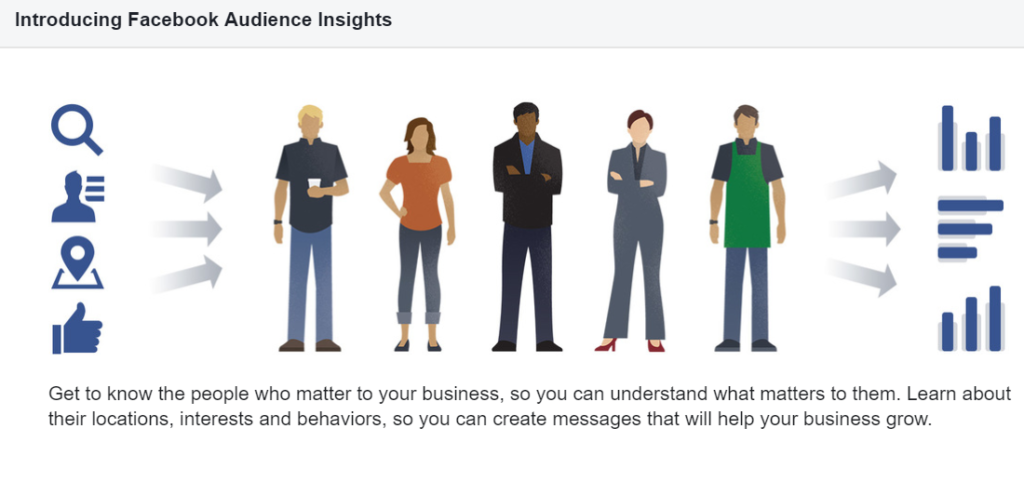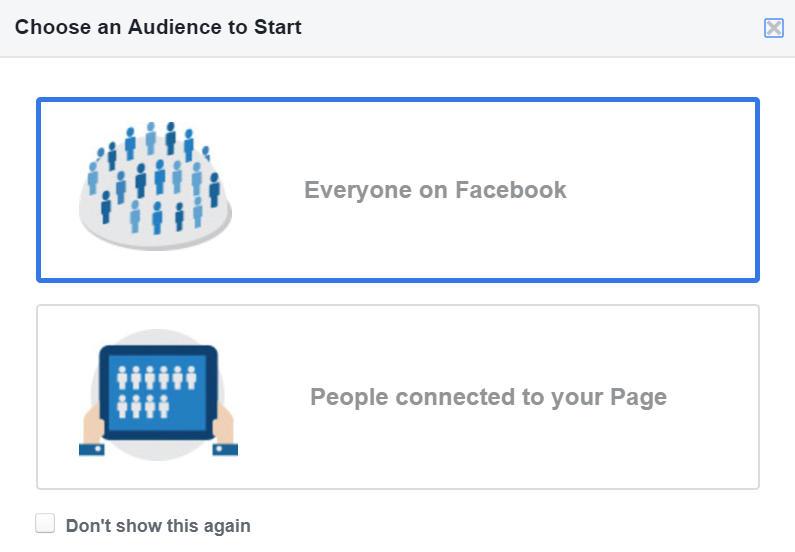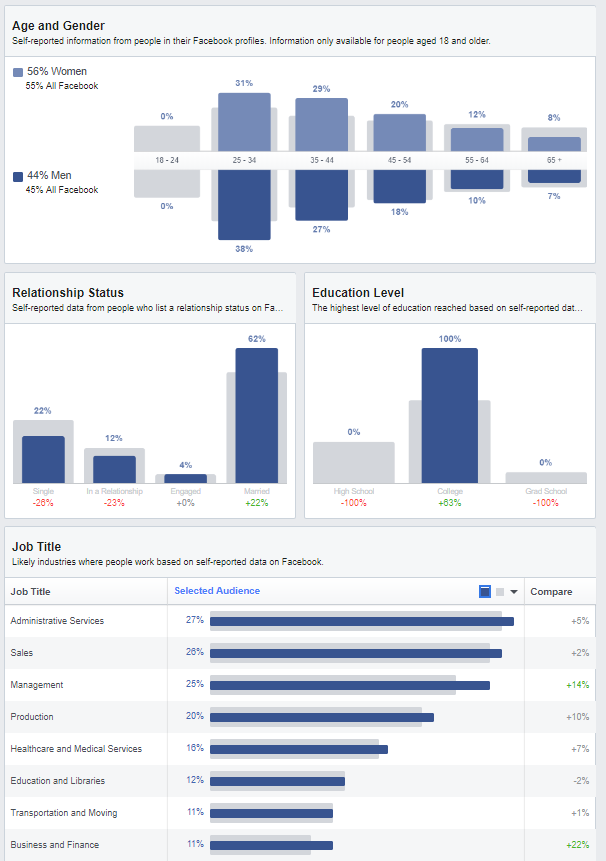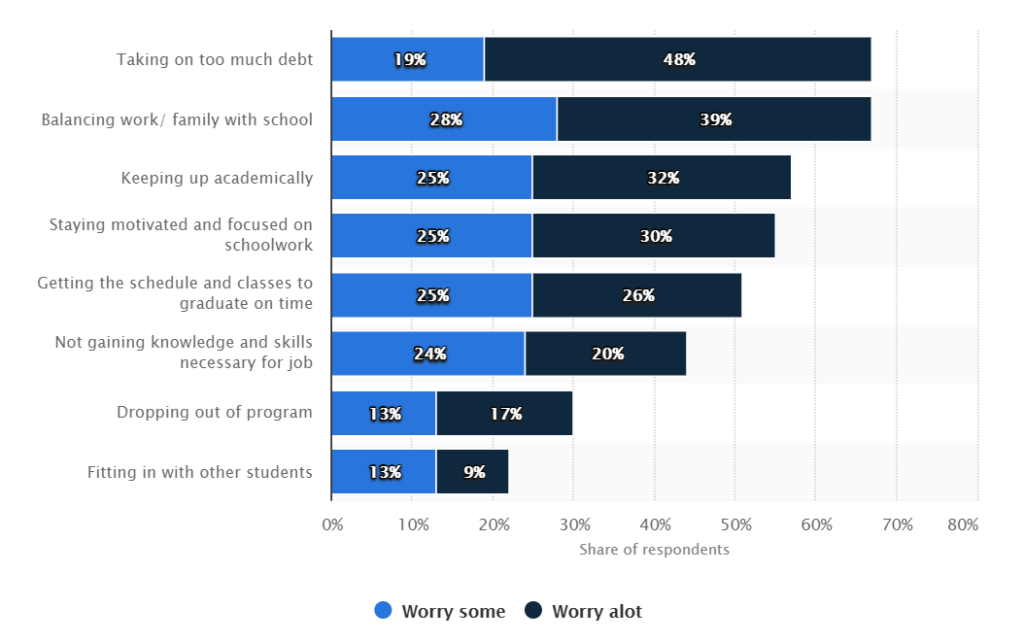Marketing Persona Examples for Adult Learners
Creating Marketing Personas to better understand your future students
Today’s digitally aware adult learners have many choices when pursuing continuing education opportunities. Institutions need to find effective ways to reach these future students and introduce the right courses or programs to them. So where do institutions begin? A great place to start is to develop marketing personas. Marketing personas will help you better understand your future students so you can make a powerful connection with empathy.
“Empathy fuels connection.”
– Brene Brown
Marketing personas are a foundational element that should not be overlooked. They are essentially the blueprint to help institutions understand future students in order to identify when and where they’re most likely to be receptive to your marketing efforts.
Components of a great persona
There are many elements to consider when developing personas, but the most important goal is to create something that is actionable. If your personas are very detailed, consider creating an abbreviated version for each persona that is circulated to your marketing and enrollment teams. Simplifying the information to a one-page description helps team members to quickly identify with the personas and better target marketing and enrollment activities.
Here are some ideas for components to include:
- Age
- Salary
- Pain points
- Relationship status
- Family status
- Career status
- Interests/hobbies
- Learning styles/schedule to consider
- A nickname that’s easy to remember
Where to get info to complete your persona
The best personas are created from a mix of research and past student profiles. The more you can tell a story about the persona, the more you can help both marketing and enrollment teams to relate to the person, his or her pain points, and the motivation behind certain behaviors. Sometimes, you may not have the information readily available, and in those cases, use your best judgment to develop a working hypothesis until you can learn more. Re-assess personas yearly and review newly available information to make the necessary modifications.
Additionally, you may find that you have broader personas (e.g. lifelong learners, career advancers, etc.) and more specific personas targeting future students of a specific master’s degree program or certificate program.
There are several different places you can research relevant information. Here are some ideas.
Using historical enrollment data
Current students and alumni are one of the best sources of information. Surveying and interviewing students and alumni help you understand their motivation for enrolling in the program.
Using Statista to develop a marketing persona
Statista has free and paid information available. In this example, I accessed free information, Reasons for concern given by U.S. adults considering going back to school. This example would be better suited when researching a broad learner type.
Here, I can see that the top five worries for adult learners are as follows:
- Taking on too much debt
- Balancing work/family with school
- Keeping up academically
- Staying motivated and focused on schoolwork
- Getting the schedule and classes to graduate on time
This helps me better understand common pain points.
Using Facebook Audience Insights to develop a marketing persona
 Source: Facebook Audience Insights
Source: Facebook Audience Insights
Depending on the size of your audience, you can choose to search everyone on Facebook or everyone who is connected to your page. If your page audience is too small, expand your search to include “Everyone on Facebook”.
 Source: Facebook Audience Insights
Source: Facebook Audience Insights
In this example, I applied the following filters:
- Age: 25+
- Interested in Engineering
- Has a college degree

Source: Facebook Audience Insights

Source: Facebook Audience Insights
This information helps me better understand the types of industries this persona currently works in.
Other places to research your marketing personas
- Google Trends
- Inside Higher Ed
- Keyword tools such as SEMrush, MOZ, etc.
- National Center for Education Statistics
- National Research Center for College & University Admissions
- Past student interviews or focus groups
- Surveys
Marketing persona components specific to adult learners
MindMax was founded with the intention of bridging the gap between universities and the adult learner—from professionals who need to add credentials to their resume, to baby boomers looking to pursue an interest. As you review your programs serving the adult learner, break down your personas to start researching. Here are two general examples, noting that yours may vary depending on several factors.
Sample 1 – Lifelong-Learner Lauryn
Age: 40-50
Salary: $75K
Pain points: she’s an empty nester and finally has time to do something for herself; she has a thirst for learning that is not easily satisfied
Relationship status: married
Family status: 2 children
Career status: currently working in a job 30+ hrs., she’s not tied to a specific career path
Interests/hobbies: she’s innately curious and enjoys taking on new challenges, listens to podcasts, avid reader, including the New York Times, DIY projects, volunteering
Learning styles/schedule to consider: because of her curiosity and acceptance of change, she is comfortable with online or in-person classes and won’t mind commuting since she can listen to podcasts during the drive
Sample 2 – Career-Advancer Allen
Age: 25 – 32
Salary: $80K
Pain points: he wants to move up the ladder and make more money quickly; he needs to deepen his skills
Relationship status: single
Family status: no children
Career status: currently working a professional FT career, in IT and wants to gain deeper knowledge in his field
Interests/hobbies: popular movies, craft beer, building models
Learning styles/schedule to consider: he’s willing to commute an hour if needed, he can take night classes and weekend classes, he may be interested in an accelerated learning path
Takeaways
Marketing personas are an important first step in empathetically connecting with your prospective students. It’s a look into their personalities and lives so that you can make informed decisions on how and where to market to them. Using a mix of research and past student profiles, compile the information making hypotheses as needed. If you have more than one page of descriptions, create an abbreviated version for distribution to your marketing and enrollment teams for recall and actionability. Be sure to reevaluate your marketing personas every year and incorporate new research and profiles and modify as needed.
Do you have any best practices with creating marketing personas? We’d love to hear about them. Comment below.


